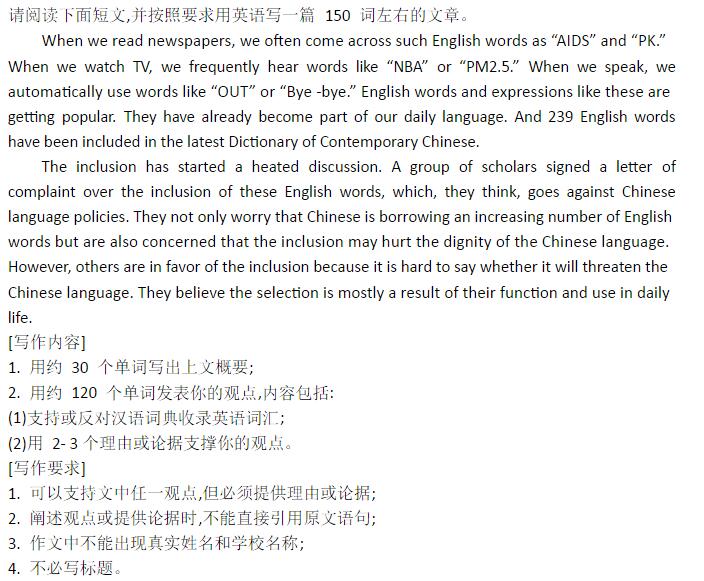
范文:
支持:
Today, more and more English words find their way into the Chinese language. Even the Dictionary of Contemporary Chinese includes 239 English words. Some people support it while others do not.
Generally, I am in favour of the inclusion. As the number of English learners is on the rise, it’s not difficult for them to understand these words in Chinese contexts. Besides, it is, on some occasions, more convenient to use English words. Most people nowadays use “IT” instead of its translation “xinxi jishu.” In our global village, we can see that it’s not uncommon for one language to borrow words from other languages. In English, there are many words borrowed from Latin, French, or even Chinese. In fact, Chinese has never stopped taking words from other languages, say, “ganbu” or “minzhu” from Japanese.
So, it’s safe to conclude that it is reasonable to include English which facilitates daily communication.
反对:
With English words getting popular in both media and daily life, a Chinese dictionary has included 239 of them, leaving the public divided into two opposing groups: “For” and “Against.”
I tend to take the “Against” side for two reasons. Firstly, this inclusion has actually polluted our mother tongue. Sooner or later, many English accents will rise and fall with the four Chinese tones. And, rules don’t tell us how to pronounce such English-turned Chinese words as “wifi” and “Out” in a Chinese way! Secondly, such an inclusion may give rise to prejudices of the educated against those with little knowledge of
English. Just for one illustration, while college students take “Bye-bye” for granted when parting from each other, it may unconsciously hurt the feelings of someone who is used to “zaijian.”
In short, not only has the inclusion poisoned Chinese, it may also bring about distance between the Chinese people.





